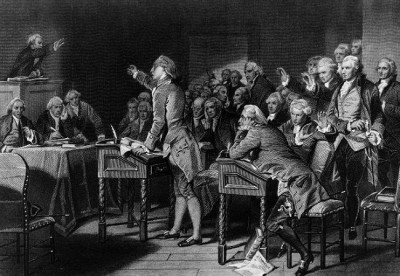I would have probably overlooked the report about a verdict in the case of EU flag burning if it wasn‘t for a Facebook status of a European Commission representative who shared it with these words: “About the limits of the freedom of speech: burning of the European flag is illegal according to court“.
So I learned that the Bratislava Regional Court sentenced two Slovaks to pay fines of 300€ a 500€ for burning a European Union flag. Back in December, the Bratislava I District Court ruled that flag burning was a riotious conduct. The offenders were banned from staying in Bratislava for two years, and had they not paid, they would have gone to prison for 3 and 5 months respectively. What is more than interesting though, is the justification of the decision presented by the head of senate:“Even though the EU flag is not a state symbol, the EU on its own is an integration group sui generis, it is a union of 28 states and its decision making on a global scale is considered unique and it should be met with a certain degree of respect. Even though we don’t deny your freedom of speech, it should have certain limitations and decency.“
Finding the limits of freedom is the hardest and the most important aspect of a well functioning society. According to our court, the treshold was exceeded by burning the EU flag. On the other hand, according to the ruling of the U.S. Supreme Court from the year 1989, flag burning is a First Amendment right. Flag burning is viewed as a symbolic expression of an opinion, and unless dangerous to life and property, shouldn’t be restricted by government. All this despite the fact that Americans hold symbols such as the flag far more dearly than us. If you went to the USA you would see the flag proudly waving in front of many houses. Americans decided that even though most of them might not like the idea of flag desecration, the freedom of speech is more important. In the same matter, we decided to restrict the freedom of speech.
Unfortunately, restrictions of economic freedom are even more evident. In these commentaries, I often write about the huge increase in bureaucracy and our decreasing competitiveness on the global market, which drives companies out of the EU. Our obsession with restricting the economic freedom and regulating everything that moves is illustrated by numbers from the Great Britain. They recently found out that since 2010 they have accepted more than 3600 new laws that originated in the EU. They even made the effort and counted that it would take a man, working an average eight hours a day and reading at an average speed of 300 words a minute, 92 days to read all the 13,321,530 words in all the new laws. The number of regulations has long ago exceeded any rational amount, not to mention all the restrictions, orders and prohibitions they contain.
Continual restriction of economic and civil liberties may have fatal consequences. Even though we can freely choose to live in an unfree society, we have to be aware of the price we will eventually pay for it. Costs of restricting freedom are great because freedom is essential for a well-functioning and prosperous society.
Translation: Jakub Jablonický




